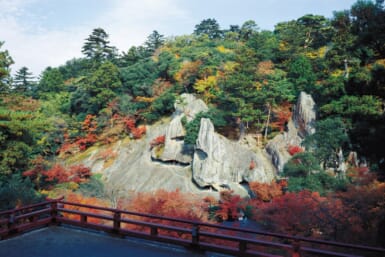Wine columnists & feet of clay
There are just too many wine critics in the U.S. nowadays for comfort; my comfort, I mean. For when I read the jargon used and the opinions delivered with Mosaic authority, I squirm. I don’t know whether I’m just ignorant about wine or they are just cheats, ripping off the public. I prefer to believe the latter.
I received some confirmation of my belief from a Los Angeles Times series on wine writers by staff writer David Shaw. The two-part series began by quoting two members of my questionable fraternity who unknowingly gave support to my suspicion of chicanery.
The first was Craig Goldwyn, publisher of the International Wine Review and writer of a monthly wine column in The Washington Post. Speaking before an East Coast audience, he described a wine writer as “a physician or lawyer with a bottle of wine and a typewriter, looking to see his or her name in print, looking for an invitation to a free lunch and a way to write off the wine cellar.”
Next at bat was Coleman Andrews who writes about wine for a Los Angeles magazine. He said that “any jerk can call himself a wine critic and get published.” Hear, hear.
Shaw pointed out that the United States is the only wine-producing country in the world with an influential wine press. England, he wrote, has long had the best and most influential wine writers, but England is a major wine market and not a major wine-producer. On the European continent, he continued, most people grow up drinking wine. They don’t need a wine writer to tell them what to drink.
On the other hand Shaw conceded there is a need for wine writers in the U.S. Consumers are faced with such a vast array of wines and vintages each year that they need the help of a wine expert to sort out the mess. He should have used quotations around “expert.”
I have been drinking wine since 1937. When I left the U.S. to come here in 1955, I had never heard of a wine writer except some great English connoisseurs like H. Warner Allen and George Saintsbury, whom Shaw mentions, rm amazed at the number of so-called experts I now see in print. I’m even more amazed by the gross solecisms they commit.
Shaw, in a sidebar headed “Writers Travel Many Roads to Status as Experts,” describes how some of them get where they are. The first one he mentions is Anthony Dias Blue, a syndicated wine columnist, the wine editor of Bon Appetit magazine and the author of a book on wine.
Blue was quoted as saying he developed his taste for wine when his father took him to visit Burgundian wine cellars when he was 11. When I read that, I wondered how old he is now; for he is the one who wrote that absurdity about a good Texan wine produced by two-year-old vines.
He apparently did not know grape vines do not produce fruit until three years after planting, and the first grapes are not fit for vinifying. His “expertise” obviously did not extend to the vineyard, which I believe is necessary for anyone pretending to be a connoisseur.
One writer began his trip to the top in 1981. This is now 1988. He must be some kind of prodigy to become an expert on a very complex subject in such a short time. How he became interested in wine is an interesting story in itself. He had been given a bottle “when he knew little about wine.” That was some years before 1981. He “stuck the bottle in a closet and moved it from closet to closet as he moved from apartment to apartment.”
Then, one night in 1981, he served it to friends at his home and was surprised when they exclaimed over it especially since he himself did not care for it. Perhaps he had a natural palate for wine, for the bottle should have been in bad shape from the mistreatment he had given it. But a few days later he learned why his friends had been thrilled, for a bottle of the same wine was sold for several hundred dollars at an auction. It was a 1961 Chateau Haul Brion.
Shaw gave another good reason for the existence of wine writers. It is the emoluments involved. Most newspapers allow their wine writers to accept sample bottles of wine, Shaw wrote. Wine writers also gel invited to wine tastings and can have their lunch and dinner paid for by wine interests virtually every day of the week.
Then there are the free trips. Wine writers could probably take four to six trips abroad every year, he said.
Among those who participate in free junkets is our old friend, Bon Appetit‘s Blue, who told Shaw he has taken “at least five trips abroad in the last three years for which most if not all, of his expenses we paid by a wine maker or foreign trade or tourist agency or airline.” He also told Shaw he earns a six-figure annual income as a syndicated columnist, as wine editor for Bon Appetit magazine, from regular contributions to two other publications and as host of a daily radio show.
Yet he doesn’t know the basics about a grape vine. Triviality of trivialities, some readers might exclaim. What does it matter if you don’t know the production schedule of a vine? It’s the wine you drink—not the vine. That is quite true for the wine drinker, but for one who is considered an expert? How can he recommend a wine that cannot have been produced?








_KRAACH-クリスタルバスソルト-385x257.jpg)